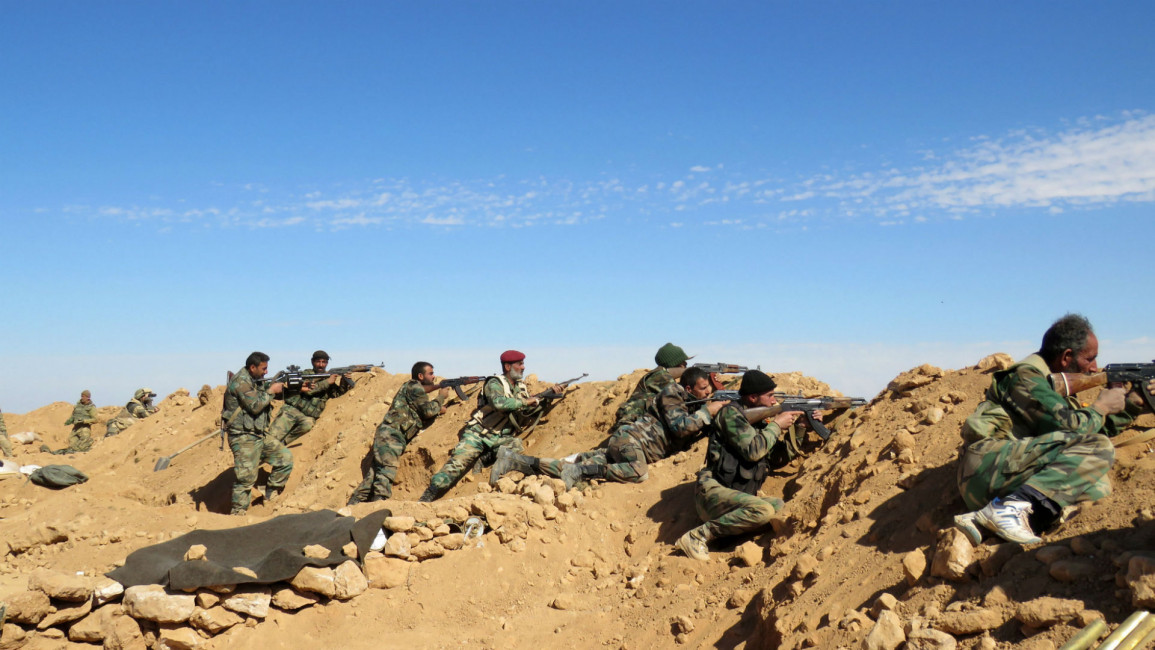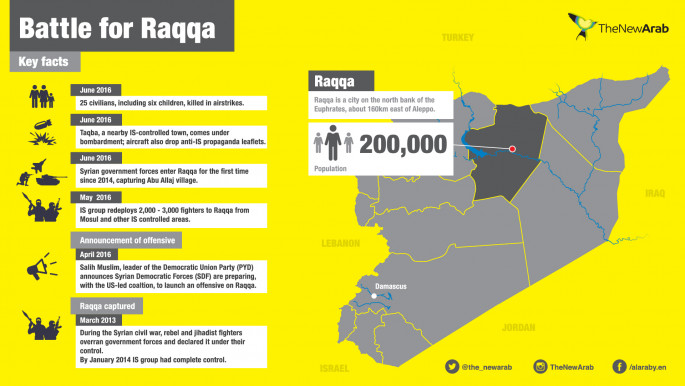Heavy regime losses in Islamic State's Raqqa counteroffensive
Militants retaliated to a government offensive that began on June 3 with the aim of recapturing the de-facto IS capital, Raqqa as well as the country's largest dam in Tabqa, the Syrian Observatory for Human Rights said.
"Daesh has managed to drive out regime troops from the administrative borders of Raqqa province after a fierce counteroffensive," the London based monitor said, using an Arabic acronym for IS.
Hundreds of reinforcements were sent to battle regime forces, resulting in the deaths of dozens of soldiers.
"More than 40 members of the pro-regime forces were killed," said the Observatory, which relies on a vast network of sources on the ground for its information.
Earlier on Monday, pro-regime fighters, backed by Russia air power, surged towards Tabqa and an adjacent air base held by the Islamic State [IS] group.
"There are fierce clashes now and at least nine pro-government fighters were killed," said the Observatory's Rami Abdel Rahman.
Government fighters have been stuck at about 15 kilometres [10 miles] from the airport for more than a week.
The government assault was accompanied by a heavy aerial campaign on the town, which allowed them to make advances on Sunday.
Fighter jets struck the town of Tabqa with cluster munitions, killing at least 10 civilians, activist group Raqqa is Being Slaughtered Silently said.
The war in Syria, which began with the brutal repression of anti-government demonstrations in 2011, has killed more than 280,000 people and displaced millions.




